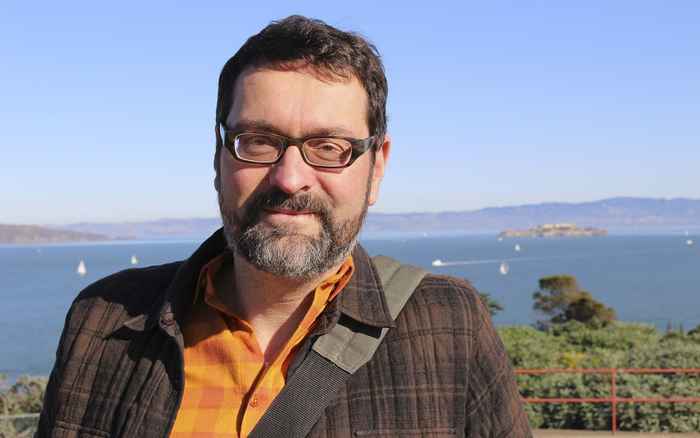Dr Roland Pfau
Sign Language Linguistics

Dr Roland Pfau is a lecturer of Sign Language Linguistics. He tells us what exactly this extraordinary discipline is all about and how he came to study it.
Do you remember what you wanted to be when you were younger?
Education was always on my list, but I also really enjoyed working with my hands. I have a bit of a shoe fetish, so I was also drawn to the craft of shoemaking. In the end, linguistics turned out to be the winner.
What exactly is linguistics?
With linguistics you study the structure and use of languages. You also examine the differences and similarities between different languages.
My introduction to Sign Language was actually a coincidence. My PhD supervisor brought me in touch with it. I was living in Germany for my doctoral research at the time and Sign Language had become a ‘political issue’ in the country. The government was debating whether to change the status of Sign Language to that of a minority language. Shortly after, the first courses in Sign Language were being offered at the University, and in 1995, together with my colleagues, we started researching German Sign Language.
Did you learn the language quickly?
I have to admit, I’m not particularly good at learning languages, but I do really enjoy it. I first learned German Sign Language, and later, when I moved to Amsterdam, I learned Dutch Sign Language. Because just as there are different spoken languages, different countries have their own Sign Language, and sometimes even more than one.
Now I teach a large number of the theory courses for the Bachelor’s in Sign Language Linguistics. I’m especially interested in the comparison of different Sign Languages, but also in their relation to spoken languages. For example, what is a sign composed of, how do you construct a sentence or ask a question? Do the patterns correspond to spoken languages, or are there patterns that are specific to Sign Language? And questions like, “How do we teach Sign Language to children?”; “How is Sign Language produced?” and “What can go wrong?"
What can go wrong? Can you have a slip of the tongue in Sign Language?
Yes, you can misspeak in any language. Just as in spoken language, you can accidentally mix up words. Like apple and pear, in Sign Language these concepts are closely related in meaning.
Does a Sign Language evolve just like a spoken language?
Yes, I would venture to say so. Research in language change is particularly difficult for Sign Language, because we don’t have old sources to draw from or use as evidence. Sign Languages aren’t written, and there wasn’t any film or video, so all that we know is quite recent. Despite this, it’s clear that Sign Languages do evolve over time. On the one hand, new signs are added, like the signs for computer or Facebook, and on the other, the grammar can change and existing signs can take on new functions.
What kind of lecturer are you?
I’d say strong, but fair. Approachable, but I do set certain standards. I think being open and approachable is incredibly important. That’s why we ensure that the distance between lecturers and students in the programme is kept short. Students can always just drop by my office. In my capacity as student advisor, I witness the progress of our students from closeby, which I think benefits the students.
What type of students study Sign Linguistics?
You have to a be communicator and be interested in language. But an analytical skillset is equally important, namely because linguists sometimes approach language from a rather abstract and theoretical point of departure. You can essentially learn and study any language on your own, but Sign Language is incredibly interactive. It frequently makes use of facial expressions, if not grimaces, and you have to be brave enough to show those. Being expressive is an integral component of the language, you really have to use your body. I guess I did end up working with my hands!